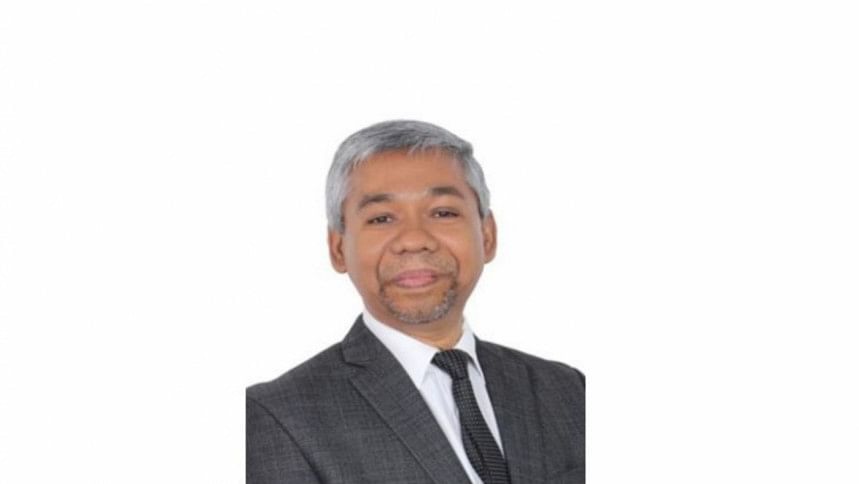Govt drafting policy for tax exemptions

The interim government of Bangladesh is drafting a tax exemption policy, prohibiting both the government and the National Board of Revenue (NBR) from allowing tax exemptions.
The move is aimed at enhancing fiscal discipline and ensuring transparency in the revenue system, according to the tax authority.
"The right to grant exemptions will rest with parliament," said NBR Chairman Abdur Rahman Khan.
He was speaking at a seminar, styled "Macroeconomic Perspective and Fiscal Measures", organised by the Economic Reporters' Forum (ERF) and the Foreign Investors' Chamber of Commerce and Industry (FICCI) at the ERF office in Dhaka yesterday.
Khan said that at present, anyone with good connections or influence can convince revenue officials to provide them with tax exemptions.
But with this move, the path to tax exemption will be more difficult in the future, the NBR chief said. He informed that the NBR constantly gets suggestions from the business community to reduce taxes.
The move is aimed at enhancing fiscal discipline and ensuring transparency in the revenue system, according to the tax authority
"On the one hand, there is a need to increase revenue. But on the other, there is demand for policy support. So, balancing these is a major challenge," Khan said.
Highlighting poor governance as their biggest problem, he said that tax officials are not properly carrying out their respective duties.
"There are serious deviations at every level. As such, we are suffering across the board. This is why we need to stabilise the rule of law. We are trying to address these issues," he added.
Khan also said that the government doesn't want to face trouble by increasing expenditure through excessive borrowing without raising revenue.
"We must align our spending with our income so that we do not increase our debt burden or pass that burden onto the next generation."
The NBR chairman further informed that the chief adviser and financial adviser have instructed that the upcoming national budget for FY26 should be as realistic as possible, not overly ambitious.
"So, we are trying to reduce the budget deficit by cutting expenditure and increasing revenue."
M Masrur Reaz, chief executive officer of Policy Exchange Bangladesh, said the country needs to let go of its fascination with GDP growth for now.
"If we can tackle macroeconomic challenges even with 3–4 percent GDP growth, that would be a major achievement. There's no need to be disheartened if GDP growth slows a bit in the process," he added.
TIM Nurul Kabir, executive director of FICCI, said the chamber emphasised the importance of collaboration with the NBR to create a more integrated tax system that streamlines revenue collection processes and improves the effectiveness of internal revenue mobilisation efforts.
To attract more foreign direct investment (FDI), he suggested optimising the effective tax rate by withdrawing thresholds for inadmissibility, rationalising tax deducted at source, and gradually eliminating the minimum tax.
These steps are aimed at creating a more competitive tax environment and would ultimately foster greater FDI inflow, Kabir said.
Recognising the global shift towards sustainability, the FICCI has proposed introducing preferential tax rates and excise benefits to incentivise the development of green supply chains.
This would not only align with global trends but also position Bangladesh as a leader in green manufacturing, he added.
The FICCI recommended the implementation of a unified VAT rate focusing exclusively on value-added tax. This would simplify the VAT structure and reduce complexities for businesses while ensuring the tax system remains efficient and equitable.
ERF General Secretary Abul Kashem moderated the seminar chaired by ERF President Doulat Akter Mala.
The NBR's Khan also said that Bangladesh is expected to receive a decision on the next tranche of its IMF loan during a key meeting in Washington on May 5.
He explained that the staff-level discussions will determine the IMF loan's approval, with a final decision anticipated at the IMF board meeting on May 23.
"We are optimistic that a positive outcome will be reached regarding the tranche," Khan added.
Khan also highlighted that negotiations with the IMF are ongoing, with significant disagreements surrounding the issue of liberalising exchange rates.

 For all latest news, follow The Daily Star's Google News channel.
For all latest news, follow The Daily Star's Google News channel. 








Comments